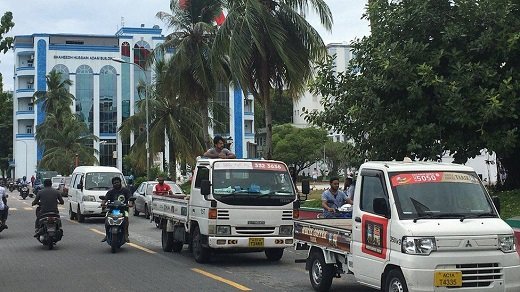In recent times, the picturesque paradise of the Maldives has become a topic of discussion among both its citizens and the international community. The subject that has sparked controversy and debate is India’s stance on a potential boycott of the nation. This article delves deep into the multifaceted issues surrounding this debate and aims to provide comprehensive insights into the matter.
The Maldives, with its pristine beaches, turquoise waters, and vibrant coral reefs, has long been a sought-after destination for tourists worldwide. However, beyond its natural beauty, the Maldives finds itself at the center of a heated discussion. At the heart of this debate is India’s consideration of a potential boycott, a decision that has triggered varied opinions within the Maldivian population.
Historical Ties
Before we delve into the current debate, it is essential to understand the historical ties that bind India and the Maldives. India has been a close neighbor and a significant influence on the Maldives for centuries. The geographical proximity has fostered diplomatic, cultural, and economic relations between the two nations.
The Current Debate
The current debate revolves around India’s stance on the Maldives, which has garnered significant attention both nationally and internationally. The primary question is whether India should initiate a boycott of the Maldives due to various reasons, including political concerns and environmental issues.
Political Concerns
One of the key factors driving the debate is the political landscape of the Maldives. The nation has experienced political instability in recent years, with tensions rising between various political factions. India, as a regional powerhouse, is concerned about the stability of the region and its potential impact on regional security.
Environmental Concerns
Another aspect that has come under scrutiny is the environmental situation in the Maldives. Rising sea levels and the threat of climate change have raised concerns about the long-term viability of the Maldives as a tourist destination. India, as a responsible global actor, is evaluating its stance on the Maldives in light of these environmental challenges.
Economic Implications
The potential boycott has significant economic implications for both the Maldives and India. The Maldives heavily relies on tourism, and any reduction in Indian tourists could have a severe impact on its economy. On the other hand, India’s decision to boycott the Maldives could affect its trade relations and diplomatic ties in the region.
Maldivian Perspectives
To gain a comprehensive understanding of the issue, it is crucial to explore the perspectives of the Maldivian population. Opinions within the Maldives vary widely, with some supporting India’s potential boycott as a means to address internal issues, while others view it as an infringement on their sovereignty.
Supporters of the Boycott
Some Maldivians argue that India’s involvement could bring much-needed stability to their nation. They see the potential boycott as a wake-up call for the Maldivian government to address political and environmental concerns more urgently.
Opponents of the Boycott
Conversely, many Maldivians oppose India’s intervention, considering it an interference in their internal affairs. They emphasize the need for autonomy and sovereignty, suggesting that any boycott would only exacerbate existing tensions.
International Reactions
India’s potential boycott of the Maldives has not gone unnoticed on the international stage. Various nations and organizations have expressed their opinions on the matter, further complicating the debate.
Global Concerns
Some countries and environmental organizations have expressed concern about the environmental impact of a boycott. They argue that collaborative efforts, rather than isolation, are necessary to address climate change and its effects on vulnerable nations like the Maldives.
Regional Dynamics
In the South Asian region, India’s stance on the Maldives has implications for its relationships with neighboring countries. The decision is closely monitored by countries such as Sri Lanka, Bangladesh, and Pakistan, all of whom have vested interests in the region.
Conclusion
The debate surrounding India’s potential boycott of the Maldives is a complex and multifaceted issue that touches upon politics, environment, and economics. While India’s intentions may be rooted in genuine concerns for the Maldives and the region, the decision carries significant consequences for both nations. As the debate rages on, it is essential to consider the perspectives of the Maldivian people and the broader international community.
In conclusion, the future of the Maldives remains uncertain, with India’s potential boycott serving as a focal point of discussion. The outcome of this debate will undoubtedly shape the destiny of this idyllic island nation and its relations with its neighbors.



